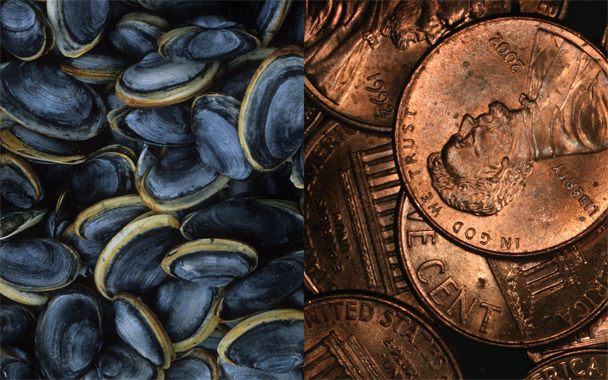Raw, steamed, fried . . . I love clams any way I can get them. And I enjoy them all the more because I cannot think of a single food that is produced in a more environmentally friendly way. Farmed hard-shell clams (and most that we buy are farmed; steamers are dug wild) receive no supplemental feed. They grow naturally by filtering the microscopic plants and particles of organic mater from the water, cleaning and clarifying it in the process and removing excess nitrogen.
But according to Robert Rheault, Executive Director of the East Coast Shellfish Growers Association, the 600 or so mostly small clam farms from Florida to Massachusetts have been too successful for their own good. “We’ve had a declining price for hard-shell clams ever since the late 1980s, when we first figured out how to grow them,” he said, in an interview this week. In those pre-aquaculture days, hard-shells from Massachusetts were worth about 25 cents apiece to the person who dug them. Due to excess production and a decline in the number of clams Americans eat, Massachusetts clams are now worth only 17 cents and have to compete with 9-cent imported clams from Vietnam and elsewhere in Asia. With rising costs, some farmers are no longer able to stay in business.
One of the hurdles Rheault hopes to overcome is that clams tend to be bi-coastal delicacies. “We have to get word out to people in the heartland who have never tried a clam because they think it’s yucky,” he said. “It’s nutritious, particularly when everyone’s looking for more Omega-3s. And it’s delicious.”
To convert the Midwesterners, Rheault has invited seven chefs from around the country to Savannah later this month for a media event that will show off preparations of four species of sustainably farmed bivalves. The event is called Romancing the Clam.
Romancing? I’ll do my bit for sustainability by eating them.




 Pinterest
Pinterest


